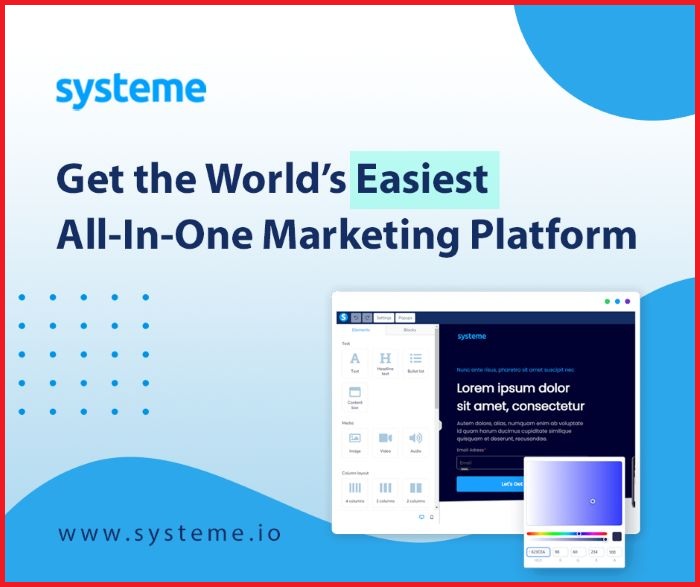In today’s digital landscape, any business wanting to grow and reach a wider audience needs a strong social media presence. A social media marketing agency specializes in creating effective strategies that help businesses build brand awareness and engage with their audience online. These agencies are experts in crafting targeted campaigns that resonate with your target market.

A social media marketing agency helps you develop a robust strategy tailored to your business goals. They create and curate engaging content to ensure that your message reaches the right people at the right time. Additionally, these agencies help in leveraging advertising and collaborating with influencers, boosting your online presence dramatically.
Working with such an agency also gives you access to analytics-driven insights and the latest trends in social media. This helps in optimizing your campaigns for better performance and achieving desired outcomes, whether it’s lead generation or increasing sales.
Key Takeaways
- Social media agencies boost your brand’s online presence.
- They create engaging content and optimize campaigns.
- Agencies use insights and trends to enhance strategy.
Understanding Social Media Marketing Agencies
Social media marketing agencies play a crucial role in enhancing your brand’s visibility and engagement on various platforms. They provide specialized services tailored to improve your digital presence, leveraging a deep understanding of social media dynamics.
Core Functions and Services
A social media marketing agency performs vital functions that can boost your brand’s reach. Key services include social media management, content creation, and targeted campaigns. Companies such as LeadOrigin offer expertise in managing various social accounts, ensuring consistent and engaging content.
Additionally, these agencies excel in crafting marketing strategies. They closely monitor analytics to adjust strategies for maximum impact. Agencies often create a mix of educational and entertaining content to keep your audience engaged.
Their role also involves listening to audience feedback and fostering two-way communication. This helps in building stronger brand relationships and loyalty. By understanding your audience’s needs, agencies tailor messages to enhance interaction and satisfaction.
The Role in Digital Marketing
Social media marketing agencies serve as a critical component of a broader digital marketing strategy. They enhance your brand’s online identity by aligning with marketing goals. Agencies like Influencer Marketing Hub focus on crafting messages that resonate across platforms.
These agencies offer specialized social media services, like influencer partnerships and paid advertisements. This tailored approach ensures your brand reaches the right audience effectively. By integrating social media strategies with wider marketing plans, agencies contribute to a cohesive digital presence.
Moreover, social media marketing agencies provide valuable insights into trends and audience behavior, aiding your brand in staying ahead in the competitive digital landscape. They work as an extension of your marketing team, providing the resources and expertise needed to excel online.
The Importance of Branding in Social Media
Creating a strong brand on social media helps increase recognition and visibility. This ensures that your business stands out in the crowded online space and connects effectively with your audience.
Establishing a Brand Voice
Your brand voice is crucial in making a memorable impact on social media. It reflects your company’s personality and values. Consistency in your brand voice across social platforms strengthens your brand identity.
Use this voice in your posts, captions, and interactions. It should be friendly, professional, or playful, depending on your audience. This distinct voice builds trust and loyalty among your followers, making your brand more relatable and memorable.
Social media platforms, like Instagram and Twitter, allow you to engage directly with your audience, using your brand voice to foster genuine connections. This approach not only helps in maintaining a strong relationship but also enhances your brand recognition.
Enhancing Brand Awareness
Social media offers vast opportunities to boost brand visibility. With billions of users online, strategic posting can significantly amplify your brand’s reach.
By using recognizable logos, consistent colors, and unique taglines, you build a cohesive brand image. This makes your content easily identifiable and memorable. Engaging content, such as stories and live videos, can showcase your brand’s unique offerings and values, solidifying brand recognition.
Partnering with influencers on social media can widen your reach and introduce your brand to new audiences who trust these personalities. This way, you leverage established communities, enhancing your brand’s presence and credibility across different platforms. This strategic use of social media can play a vital role in ensuring that your brand is easily recognized and remembered.
Developing a Robust Social Media Strategy
Creating a strong social media strategy involves crucial steps like identifying your audience, setting measurable goals, and ensuring a return on investment. Each part is vital in crafting a plan that enhances engagement and boosts your brand’s presence.
Identifying Target Audiences
Understanding your target audience is key to a successful social media strategy. Start by analyzing demographic data, interests, and behavior patterns.
Use tools like social media analytics to gain insights into who is engaging with your content. Surveys and feedback can further refine your understanding of your audience’s needs.
You should also consider creating audience personas. These are detailed profiles that represent your typical customers and can guide your content creation.
Tailoring your content according to what your audience values will lead to better engagement and reach.
Measuring Success and ROI
To determine if your strategy is effective, you must measure success and ROI. Establish clear social media goals and key performance indicators (KPIs) from the start.
Metrics like engagement rates, follower growth, and conversion rates are crucial. Use social media platforms’ built-in tools and third-party services for analytics.
Tracking these metrics allows you to see what works and what doesn’t. If certain types of content drive more engagement or conversions, adjust your strategy accordingly.
Measuring ROI ensures your efforts align with your business objectives and justify the resources invested.
Strategy Development
Developing your strategy involves crafting a content strategy that resonates with your audience. Set specific goals and create a calendar for consistent posting.
Balance different types of content: informative, entertaining, or promotional. The 50-30-20 rule can help maintain a good content mix.
Align your social media goals with broader business objectives. Ensure that every piece of content contributes towards these goals.
Regularly review and adjust your strategy based on performance data. This flexibility helps you stay relevant and continuously improve your approach.
Components of Social Media Management
Social media management includes various components that help boost your brand’s online presence. Key elements include planning content, engaging with your audience, and analyzing performance data to refine strategies.
Content Calendar and Scheduling
A content calendar is your roadmap for what to post and when. It helps organize your posts, ensuring consistent and timely updates across all your social media accounts. By planning in advance, you can coordinate campaigns, track holidays, and align content with your business goals.
Scheduling tools automate posting at optimal times for audience engagement. They free you from manual updates, letting you focus more on content creation and less on routine tasks. This streamlined process results in more efficient and impactful social media marketing efforts.
Community Engagement and Management
Strong community management fosters connections. By interacting with your followers, you build a loyal audience. Timely responses to comments and messages show that you value your community’s input. This ongoing dialogue not only resolves issues but also strengthens relationships.
Your role in community engagement involves listening to feedback, encouraging discussions, and promoting user-generated content. Keeping your followers engaged through polls, contests, or stories can increase visibility and create a more dynamic online presence.
Analytics and Reporting
Analytics are vital in understanding the effectiveness of your strategies. They provide insights into how your social media accounts are performing. Metrics such as likes, shares, and comments help you gauge engagement levels.
Reporting tools compile this data into easy-to-understand formats, highlighting what works and what doesn’t. Regular analysis allows you to adjust your plans based on performance trends and audience behavior. By relying on data, you can make informed decisions to enhance your marketing efforts.
Creating and Curating Engaging Content
Producing engaging content is crucial for a social media marketing agency. This involves creating eye-catching visuals and integrating content marketing strategies. It’s important to balance striking design with meaningful messaging to ensure that your audience remains interested and informed.
Designing Visual Content
Visuals are key in capturing attention on social media. To create compelling visuals, consider incorporating graphic design elements such as bold colors, typography, and imagery that align with your brand. Tools like Canva or Adobe Spark can help you design these images easily.
Video production is another powerful way to engage your audience. Short, impactful videos can convey messages quickly and effectively. Use platforms like Instagram Reels or TikTok to share your videos, ensuring they are optimized for mobile viewing.
Infographics can also be a great way to present data visually. They combine text and visuals to simplify complex information. Remember to maintain consistency in your visual content to build brand recognition. Tailor your visuals to suit different platforms, as each has its own preferred formats and dimensions.
Content Marketing Integration
Integrating visual content into your broader content marketing strategy enhances its effectiveness. Begin by identifying key topics that resonate with your audience and plan content around these areas. Use curated content alongside original creations to provide varied perspectives.
Engage with your audience by sharing informative blog posts or articles. Link these back to your own website for added value. Incorporating user-generated content can also boost engagement, allowing your followers to feel part of your brand.
Schedule your content strategically to maintain a consistent online presence. Tools like Hootsuite or Buffer help manage your posts, ensuring regular updates. By aligning your visual content with your overall marketing goals, you strengthen your brand’s presence and foster a more engaged community.
Leveraging Advertising and Promotion
Successful advertising and promotion are vital for any social media marketing agency. You can see great results by effectively using paid social ads and integrating email marketing into your campaigns. Each tool has its own role and benefits in reaching a wider audience and engaging customers.
Paid Social Ads Strategy
Social Media Advertising platforms like Facebook, Instagram, and LinkedIn offer various options to target specific audiences. You can adjust settings based on demographics, interests, and behaviors. Creating targeted advertising campaigns helps increase engagement and conversion rates.
Testing different ad formats like carousel, video, or stories can capture attention. Monitoring ad performance is crucial. Use analytics tools to track metrics such as click-through rates (CTR) and return on ad spend (ROAS). Reviewing these insights helps refine your strategy and maximize your budget. Properly managing budget allocation ensures the best outcomes from your paid ads.
Incorporating Email Marketing Campaigns
Combining social media efforts with email marketing enhances overall effectiveness. You can use email campaigns to nurture leads collected through social media platforms. Personalized content in emails keeps your audience engaged.
Build a strong email list through lead magnets like free guides or exclusive offers. Regularly send targeted emails with updated content, promotions, or newsletters. Automation tools simplify managing different audience segments and scheduling send times. Analyzing data, such as open and conversion rates, guides improvements in your campaigns. Together, these efforts build a comprehensive strategy that boosts brand visibility and customer retention.
Influencer Marketing and Collaborations
Influencer marketing has become a key strategy for reaching audiences on social media. Collaborations between brands and influencers can boost visibility and create engaging content for followers.
Partnering with Influencers
When partnering with influencers, select individuals who align with your brand values and target audience. Consider their follower count, engagement rates, and content style. You can choose from various influencer types, including mega, macro, micro, and nano influencers. The right fit ensures authentic promotion and fosters genuine connections.
Remember to outline clear goals and expectations. Using influencer agreements can help define roles, deliverables, and timelines. This collaboration can create organic content and personal recommendations that resonate well with audiences.
Executing Collaborative Campaigns
Once you’ve chosen influencers, it’s time to execute collaborative campaigns. Develop strategies that incorporate influencers’ unique styles. This might include product reviews, unboxings, or tutorials to capture interest and inspire trust.
Engage your audience further by organizing social media contests or giveaways. These activities can boost interaction and widen your reach.
Monitor campaign analytics to assess performance and return on investment. Look at engagement, click-through rates, and follower growth for insights.
Analytics-Driven Social Media Optimization
Analytics-driven social media optimization (SMO) helps improve your online presence. By interpreting metrics and adjusting campaigns, you can boost engagement and website traffic effectively.
Interpreting Social Media Metrics
Understanding social media analytics can guide your marketing strategies. Metrics like reach, engagement, and conversion rates indicate how well your content performs.
Reach shows how many people see your posts, while engagement reveals the level of interaction. Keep an eye on click-through rates to assess how often users move to your website from social media.
Use data-driven decisions to refine your approach. For instance, if high engagement occurs during specific times, schedule posts then. Understanding these metrics helps you respond to audience needs more accurately, enhancing your strategy.
Optimizing Campaigns for Better Outcomes
Optimization involves making data-informed tweaks to maximize results. Use metrics to identify underperforming content and adjust by changing timing, format, or style.
Incorporate A/B testing to find what resonates best with your audience. Tools like analytics dashboards provide insights into campaign elements like demographics and website traffic.
Tracking visitor behavior lets you see which platforms drive conversions, helping you allocate resources intelligently. By continuously refining your campaigns with the right data, you boost overall performance, ensuring your social media efforts deliver the best possible outcomes.
The Emergence of New Platforms and Trends
As social media evolves, it’s crucial to keep up with new platforms and trends. Engaging content and adapting to changes in platforms like TikTok and Instagram Reels are essential for success.
Adapting to Changing Social Media Trends
To thrive, you need to adapt to fast-changing social media trends. Platforms like TikTok have changed the way users interact with content.
Short, engaging videos are the focus. These capture attention quickly and are shared widely.
Instagram Reels, similar to TikTok, provide another avenue to reach audiences with creative video content. These platforms increase your organic reach by connecting with younger users who prefer dynamic media.
Staying updated with these trends ensures your content remains relevant and engaging, helping you maintain audience interest and loyalty.
Exploring Emerging Platforms
New social media platforms are continually emerging. It’s vital to explore these to find where your audience might be shifting.
Apps like BeReal offer unique ways to engage users. Understanding the strengths of each platform can help tailor your marketing strategies effectively.
By leveraging niche platforms, you can target specific audience segments with customized messages. This approach helps in building a more personalized connection with your followers.
Keeping an eye on fresh platforms and experimenting with their features can set your brand apart in a crowded digital landscape.
Social Media for Lead Generation and Sales
When using social media for lead generation and sales, it’s crucial to turn followers into actual customers and employ targeted strategies to boost sales. This approach helps businesses connect with their audience and manage qualified leads effectively.
Converting Followers to Customers
Building a relationship with your followers is the foundation of converting them into customers. Start with engaging content that speaks directly to your target audience’s needs and interests.
This might include sharing customer testimonials, behind-the-scenes looks, or user-generated content. Interactivity is key.
Consider polls, quizzes, and live Q&A sessions to increase engagement. Use clear, compelling calls to action (CTAs) to guide followers towards a decision, like signing up for a newsletter or a demo.
Offering exclusive deals or discounts to followers can also incentivize them to make a purchase.
Finally, analyze metrics to understand which content types and engagement strategies are most effective. This feedback allows you to fine-tune your approach, ensuring your efforts align with your goals of generating leads and increasing sales.
Sales-Focused Social Media Tactics
To drive sales through social media, employ strategies tailored to meet your sales objectives.
Retargeting ads are one effective tactic, re-engaging users who have already shown interest in your products or services. Studies indicate that retargeting helps recapture lost prospects.
Another tactic is creating shoppable posts on platforms like Instagram or Facebook. These allow users to purchase directly from your social media pages, simplifying the buying process.
Ensure that product information is clear and accessible. Partner with influencers who resonate with your brand. Their endorsement can expand your reach and credibility.
Lastly, automation tools can help manage interactions at scale, ensuring no potential lead goes unnoticed. This strategic use of social media is essential in turning engagement into tangible sales.
Comprehensive Services of Social Media Agencies
Social media agencies offer a wide range of services designed to enhance your brand’s presence online. These services not only cover social media management but extend to include digital marketing, search engine strategies, and reputation management.
Full-Spectrum Digital Marketing
Social media agencies provide full-spectrum digital marketing services that cater to your overall online presence. This includes creating engaging content, managing social media accounts, and designing websites that are visually appealing and user-friendly.
By focusing on a comprehensive approach, they ensure that every aspect of your digital marketing is cohesive and effective.
Agencies often use techniques such as targeted advertising and data analysis to tailor campaigns for specific audiences. They might also integrate elements like website design and email marketing to maximize reach and impact.
Search Engine Marketing Integration
A critical part of a social media agency’s offerings is search engine marketing integration. This involves incorporating Search Engine Optimization (SEO) strategies to improve your website’s visibility on search engines.
By optimizing keywords, content, and technical elements, agencies help your site rank higher. Search engines often drive significant traffic to websites. These agencies ensure that your social media efforts and website traffic work together seamlessly.
By aligning your social campaigns with search engine marketing, they can enhance brand discovery and visibility.
Online Reputation and Crisis Management
Dealing with your brand’s online reputation is another essential service offered by these agencies. Online reputation and crisis management helps you maintain a positive image even in challenging situations.
This could involve monitoring social media mentions and reviews to quickly address negative feedback. By offering strategies for crisis situations, agencies safeguard your brand’s image.
They utilize tools for sentiment analysis to keep track of public perception, ensuring an immediate and effective response when required. Reputation management is crucial for long-term brand trust and customer loyalty.
Evaluating and Choosing a Social Media Marketing Agency
When choosing a social media marketing agency, it’s important to know what to look for and how to assess your current online presence. This section provides a clear guide on selecting the right agency and reviewing your social media landscape.
Criteria for Agency Selection
Choosing the right social media marketing agency involves several critical factors.
First, evaluate the agency’s own social media presence. Their online activity and engagement can tell you a lot about their capabilities. Look for agencies that excel in the platforms where your target audience spends most of their time.
Assess their experience and expertise in your industry. Agencies should have a proven track record with businesses like yours. Client testimonials and case studies can provide insight into their effectiveness.
Consider the range of services they offer. Some agencies specialize in content creation, while others may focus on advertising or analytics. Ensure their services align with your business goals.
Conducting a Social Media Audit
A social media audit is a valuable step in understanding your current online presence.
Start by listing all your active social media platforms. Evaluate performance metrics like engagement rates, follower growth, and post reach to identify strengths and weaknesses.
Check for consistency in branding and messaging across platforms. Inconsistencies can confuse your audience and weaken your brand identity.
It’s also essential to analyze audience demographics and engagement patterns to see if you’re reaching the right people.
Gather insights on the types of content that perform well. This information can guide future strategies and help set clear objectives.
Tools like analytics dashboards can aid in this analysis, making the process more efficient. These steps ensure you’re well-prepared to collaborate effectively with your chosen agency.
Case Studies and Success Stories
Case studies and success stories can show the impact of social media marketing agencies on business growth and return on investment. By examining specific client results and successful strategies, you gain insight into how these agencies achieve their marketing goals.
Examining Client Results
In examining client results, it’s crucial to focus on metrics like audience reach, engagement, and conversions.
For instance, agencies aim to boost their clients’ social media presence by increasing followers and interaction rates. Some case studies highlight businesses experiencing a 330% increase in reach due to well-executed strategies.
These stories can include impressive growth figures, showcasing effective tactics like targeted advertising or viral content campaigns. Results are not just about numbers, but also about meeting and exceeding client expectations.
Real success stories reveal how investing in social media marketing yields a tangible return. This could be through increased sales or enhanced brand awareness.
Strategies Leading to Success
Strategies leading to success often involve a mix of creative content and clever platform use.
Some firms prioritize quality over quantity, like Starbucks’ approach of posting fewer but more engaging updates. This helps avoid overwhelming followers and instead captures their attention effectively.
Other successful strategies include using platform-specific features to maximize impact. Choosing the right platforms, such as TikTok for a younger audience, or Facebook for broader reach, plays into this.
Combining these tactics with data-driven decisions and continuous optimization can amplify results. Campaigns that adapt and respond to metrics often yield the most successful outcomes for businesses.
Frequently Asked Questions
Social media marketing agencies play a key role in managing your brand’s online presence. These agencies offer multiple services, such as content creation and advertising strategies. They can help boost your reach and engagement across different platforms.
How can one start a social media marketing agency with no prior experience?
Starting a social media marketing agency without experience might seem challenging, but it’s possible.
Learning the basics of social media platforms and marketing strategies is essential. You can start by offering services to small businesses for free or at a reduced cost to gain experience and build a portfolio.
What are the primary services offered by social media marketing agencies?
Social media marketing agencies provide services like content creation, social media strategy formation, and advertising.
They often handle social media accounts, post content regularly, and analyze engagement metrics. Additionally, they can manage paid advertising campaigns to reach larger audiences.
In what ways do social media marketing agencies generate revenue?
These agencies generate revenue through client fees for services offered. They may charge retainers, project-based fees, or performance-based pricing.
Revenue can also come from managing ad budgets and taking a percentage of ad spend.
What are some examples of successful social media marketing agencies?
Some leading social media marketing agencies include Influencer Marketing Hub and others known for effective campaigns and broad reach. These agencies often work with high-profile clients and showcase their successful case studies.
How much can it cost to hire a social media marketing agency?
The cost of hiring a social media marketing agency varies widely. It can range from a few hundred dollars per month for basic services to several thousand for comprehensive campaigns. Factors affecting cost include the scope of services and the agency’s reputation.
What strategies do social media marketing agencies use to cater to small businesses?
Agencies often tailor strategies to fit the specific needs and budgets of small businesses. This might include focusing on local SEO, creating highly targeted ad campaigns, or emphasizing user-generated content to increase engagement and community involvement. Small businesses often benefit from data-driven and cost-effective strategies.





